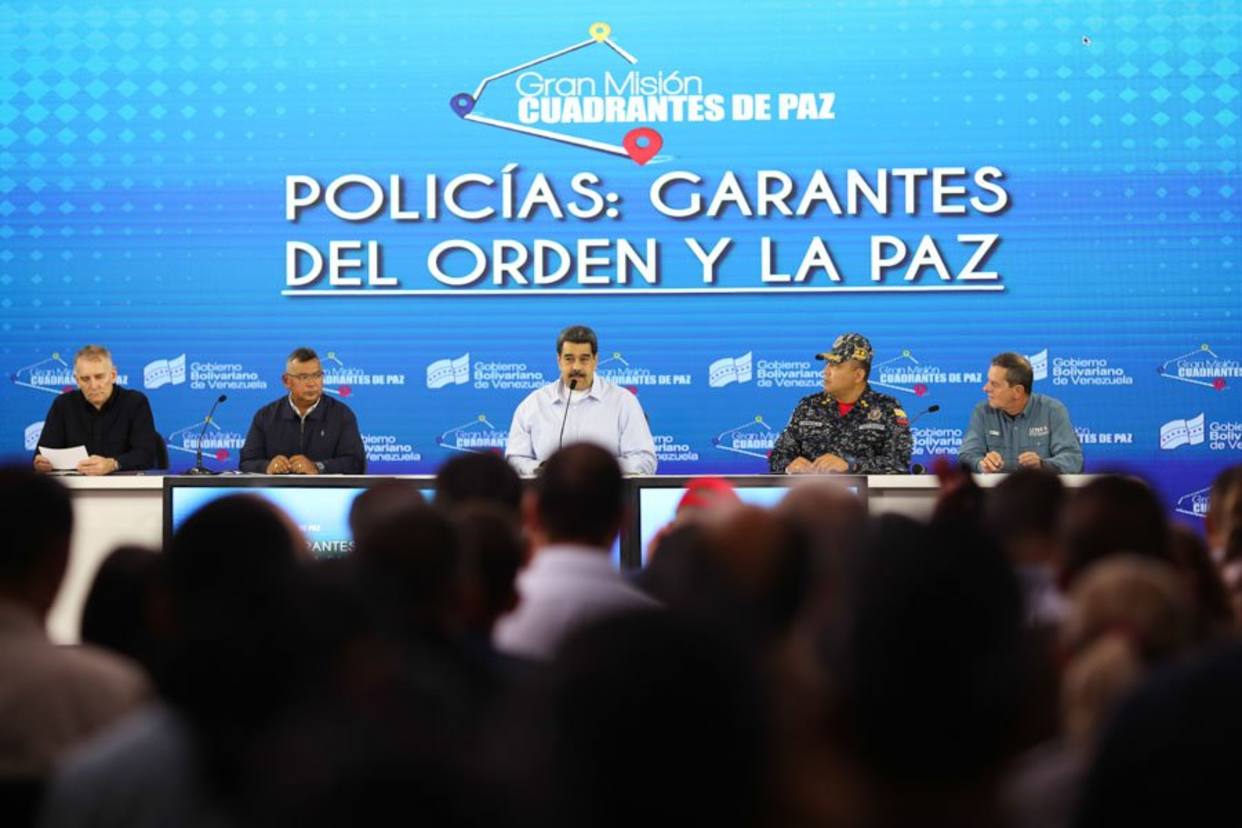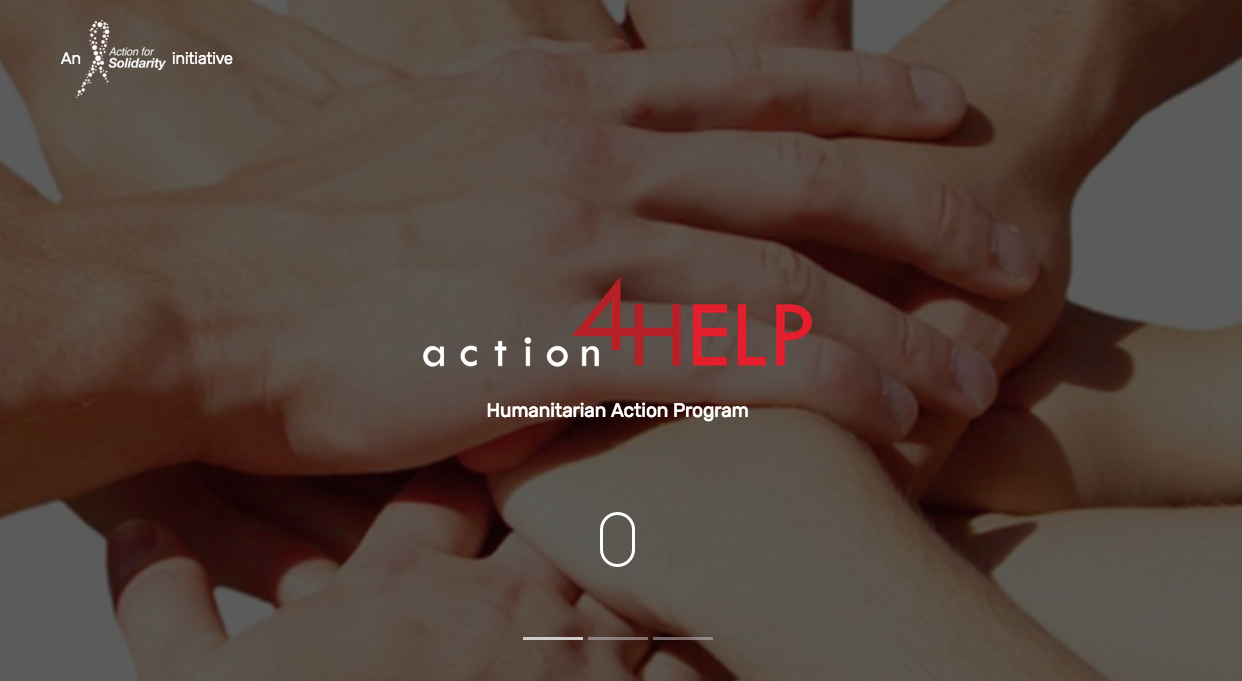18 March 2022
Mr. President,
Distinguished delegates,
Ladies and Gentlemen,
The Independent International Fact-Finding Mission on the Bolivarian Republic of Venezuela is pleased to present this oral update of its work, in accordance with Resolution 45/20 adopted by this Council.
In September 2020, the Mission presented its first report detailing cases of extrajudicial executions, enforced disappearances, arbitrary detentions, and torture and cruel, inhuman or degrading treatment, including sexual and gender-based violence, committed by Venezuelan state actors since 2014. We conclude that there are reasonable grounds to believe that some of the conduct described in that report amount to crimes against humanity.
In our second report, presented in September 2021, we focused our investigation on the response of the justice system to the human rights violations and crimes documented by the Mission. We conclude that actors in this system, both by action and omission, have played an important role in the State’s repression of real and perceived Government opponents.
Mr. President,
The Government has announced that it will take measures to address the situation of impunity in Venezuela. Although what really matters is the implementation of the planned measures, the recognition that there is a situation of impunity that must be addressed is already a welcome development.
Not long after the publication of our second report, the Government signed a memorandum of understanding with the Office of the Prosecutor of the International Criminal Court in which it pledged to take all necessary measures to ensure the effective administration of justice in the country, in accordance with international standards. This process represents an opportunity for victims to obtain justice.
At the end of October last year, the Chief Prosecutor Tarek William Saab presented an update on advances made by the Public Prosecutor’s Office in addressing human rights violations committed by State security officials. He stated that, since he took office, 185 people have been convicted for such violations. However, as the Mission has noted, the lack of disaggregated data and key information on the crimes charged or the rank or level of responsibility of the perpetrators continues to be an obstacle to assessing the State’s real efforts to investigate and prosecute these violations.
In recent months, there have been some developments in emblematic cases investigated by the Mission. In December 2021, a detective and an inspector of SEBIN were convicted of negligent homicide and other minor charges, to which they pleaded guilty, in connection with the death of Fernando Albán in 2018. Each of these low-level officials was sentenced to 5 years and 10 months in prison. In February 2022, the Tenth Chamber of the Caracas Criminal Court of Appeals reduced the sentence imposed to 2 years and 8 months. The officials were released.
On February 4, 2022, the Twelfth Criminal Control Court sentenced two military intelligence officers to 30 years in prison for torture and homicide with malice aforethought for the death of Captain Rafael Acosta Arevalo. A previous sentence against the two men, which had omitted the torture charges, was vacated.
We reiterate that victims of human rights violations and crimes and/or their families have the right to participate in judicial proceedings, as guaranteed by domestic law. According to the relatives of Mr. Albán and Mr. Acosta Arévalo, this right has not been upheld.
We also reiterate the concern raised in our 2020 and 2021 reports that domestic investigations, when conducted, are limited in scope and target low-level, material perpetrators. The cases of Mr. Albán and Mr. Acosta Arévalo are examples of this.
For this reason, we are expanding our current investigations into responsibilities higher up the chain of command and will present our findings to this Council in September of this year. We are also exploring the interests that may have been involved in motivating these violations and crimes.
Mr. President,
Concerted efforts are needed to address the structural problems stemming from the lack of judicial independence and the interference of political actors in the justice system. We provided a detailed description of these problems in our September 2021 report.
As of August 2021, the National Assembly announced that it would carry out a package of reforms related to the justice system. The Mission considers that a legal reform, in and of itself, is insufficient without proper implemented.
As part of this package, the legislature amended 19 articles of the Criminal Procedure Code in September 2021, reducing several time limits applicable to criminal proceedings, including the duration of pre-trial detention in accordance with Article 230.
In line with the amendments, we have registered some positive developments in cases investigated by the Mission. However, there are still dozens of people who have been detained for more than three years without trial, well beyond both the limits imposed by the previous and the reformed law.
Further, in the second half of 2021, there have been two deaths in custody of real or perceived opponents of the Government, both related to the lack of medical attention. One of these is the death of General Raúl Isaías Baduel, a case previously documented by the Mission. His son Josnars Adolfo Baduel Oyoque, who remains detained in SEBIN’s El Helicoide and is in poor health, requires immediate medical attention.
The Mission is concerned that individuals identified in our previous reports have not received adequate medical attention, despite repeated requests to that effect. For example, Emirlendris Benítez, one of the women detained in connection with the Drones Case and subjected to torture DGCIM’s Boleíta facility, has not had access to effective medical treatment. As a result, her health has deteriorated significantly, leaving her wheelchair-bound.
Mr. President,
As part of this reform package, the National Assembly adopted in December 2021 a lawcreating the Commission for the Guarantee of Justice and Reparations for Victims of Crimes against Human Rights. This law, which is yet to be made operational, only grants the Commission limited powers to oversee investigations and make recommendations. In addition, the seven members of the Commission are appointed by the National Assembly, which jeopardizes its independence from political actors.
In our last report we expressed our concern over political influence in the selection of judges. In January 2022, the National Assembly approved reforms to the Organic Law of the Supreme Tribunal of Justice. Unfortunately, some of these do not reduce but increase the political influence over the Judiciary. For example, the balance in the composition of the Judicial Nominations Committee is disturbed, as members of the National Assembly are now a majority over members of civil society. The amendments also give more powers to the National Assembly, allowing it to appoint key figures in the Judiciary, such as the General Inspector of Courts and the Director of the National School of the Judiciary.
The Mission is also deeply concerned about the practical effect of the Second Transitory Article of said reform, according to which current Supreme Tribunal justices may reapply under the announced new selection process, which would effectively allow them to continue to serve despite having exceeded the maximum 12-year term stipulated in the Constitution.
The Chief Prosecutor also announced, at the end of October last year, a plan to address the appointment of provisional prosecutors. While this plan may be a step in the right direction if properly implemented, the Mission notes that it only concerns prosecutors already in office and does not take steps to ensure that access to the prosecutorial career is determined by public competition. It also fails to provide concrete steps to address other structural problems within the Public Prosecutor’s Office, such as those identified by the Mission in its 2021 report.
Mr. President,
Since September 2021, some progress has been made in the transfer of persons out of SEBIN and DGCIM detention centers, in accordance with a Presidential Decree of May 2021. However, the FFM is concerned that detainees in cases involving real or perceived Government opponents have not been transferred. Equally concerning are reports that the DGCIM continues to transfer new detainees to Boleíta.
Among those still detained in SEBIN’s El Helicoide is Javier Tarazona, director of Fundaredes, who was detained in July 2021 and was charged with terrorism and incitement to hate last December. The Mission has received information that Mr. Tarazona has been subjected to torture, including psychological or white torture. It is also of concern that journalist Roland Carreño continues to be detained in El Helicoide, despite the irregularities in his case highlighted in our last report.
Juan Carlos Marrufo and María Auxiliadora Delgado, as documented in the Mission’s 2021 report, were arbitrarily detained in 2019 and remain in DGCIM Boleíta despite reiterated transfer requests.
The Fact-Finding Mission has previously raised concerns in the case of Orlando Moreno, a well-known opposition figure and human rights activist who has worked at Foro Penal. Mr. Moreno was arrested in 2017 and charged with possession of an explosive artefact, which carries a penalty of two to five years. Upon his release with precautionary measures in 2017, he filed a complaint for torture while in detention. Mr. Moreno was not requested to confirm that complaint until September 2021. A few days later – and four years after the initial allegations – Mr. Moreno was notified that the 2017 case against him would proceed to the preliminary hearing phase and later to trial. The trial against him is ongoing. The Fact-Finding Mission is concerned that this case may be an example of the use of the justice system as a tool tool to persecute Government opponents.
On December 10, 2021, Juan Carlos Guillén, a lawyer for several people detained for political reasons, was detained. He was held incommunicado for 13 days by DGCIM in Apure, during which time his family did not know his whereabouts. Mr. Guillén was the lawyer of Reyes Gabriel Hernández González, detained in DGCIM since September 2017 and recently released. Mr. Hernández had denounced that he was tortured prior to the decision on his release. Subsequently, both Mr. Hernández’s lawyer (Mr. Guillén) and the judge who ordered the release (Mr. Carlos Jaimes), were detained by DGCIM. Both are still in pre-trial detention, accused of corruption.
Mr. President,
Today, the daily lives of the Venezuelan people continue to be scarred. They have endured a decade of deepening economic, humanitarian and human rights crises, as well as the breaking down of State institutions, all of this exacerbated, most recently, by the impact of COVID-19. The clearest showing of this are the more than six million people who have had to leave the country.
Despite two years of ignored requests, the Mission continues to request collaboration with the Venezuelan authorities. We will continue to work independently, impartially, objectively and rigorously to build a credible body of information to be presented to this Council in September of this year.
We urge members of the Human Rights Council to continue to pay close attention to developments in Venezuela and to monitor whether credible progress is being made in advancing justice, accountability and respect for human rights.
Thank you for your attention.




